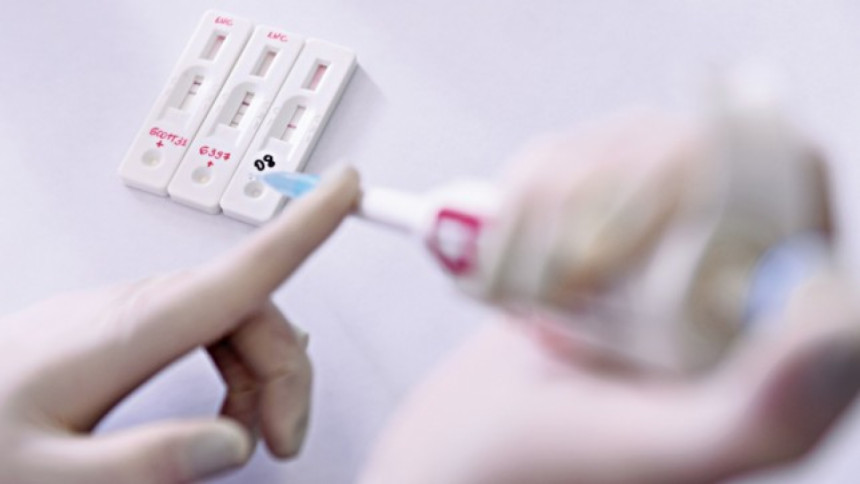Antigen-Based Testing: Public hospitals get the green light

After months of bureaucratic tangle, the government has permitted antigen-based rapid testing for Covid-19 at the public healthcare centres.
The announcement was made yesterday in accordance with a circular issued on September 17.
"We have issued the circular allowing antigen-based testing at the healthcare installations," Deputy Secretary Bilkis Begum of the Health Services Division told The Daily Star yesterday.
"Antigen-based testing has been permitted for all government hospitals, district hospitals, government PCR labs and all health institutes as per the proposal of the health directorate and the interim guideline of the World Health Organization," reads the circular.
The guideline for Covid-19 testing protocol has to be followed once it is finalised, it added.
Prof Nazrul Islam, member of the National Technical Advisory Committee (NTAC) on Covid-19, said the government was looking for a suitable device with better efficacy.
"Antigen-based testing will help detect Covid-19 patients everywhere easily. Because there is no PCR lab in many districts," he told this correspondent.
According to the DGHS, there are 94 Covid-19 RT-PCR labs across the country.
With the approval for use of antigen-based testing kits, the Directorate General of Drug Administration (DGDA) will now decide which companies' kits will be imported, sources said.
Rapid diagnostic tests (RDTs) are easy-to-use paper tests to facilitate testing outside of laboratory settings within a timeframe of a few minutes to half an hour. There are two types RTDs -- antigen-based and antibody-based testing.
The antigen-based rapid testing is a molecular test -- alternative to the sophisticated RT-PCR test -- which detects the presence of the virus itself, while the antibody tests look for past presence of the virus and a possible immune response to the infection.
The antigen test involves taking a saliva sample and can usually determine whether a patient is acutely infected and contagious within 15 minutes.
Although an antigen test is less accurate than a complete PCR analysis, the major advantages are quick results and the possibility to use it directly on site.
Although the World Health Organization has not also given nod to use of rapid testing for Covid-19, many countries are using it to cope with the pressure on the RT-PCR based lab testing.
Experts since June have been suggesting the government introduce it in Bangladesh.
In June, the NTAC had recommended use of rapid testing kits to ease the pressure on pathology services. The exercise of introducing the antigen test started in early July.
On July 5, the DGHS sent a letter to the secretary of Health Services Division, mentioning the urgency for forming a Covid-19 sample testing expansion policy.
The letter said the DGHS had already prepared a draft policy and it could be approved with necessary guidelines on an emergency basis.
On July 7, the draft of the policy was submitted to the director general of DGHS. The directorate sent the draft policy to the health ministry on July 9.
Later, the ministry formed a committee of experts to prepare a sample testing expansion policy. The committee on August 4 finalised its report incorporating opinions and sent it to the Health Services Division.
At the end of last month, Health Minister Zahid Maleque said the government was going to take an initiative to start rapid antigen testing in public Covid-19 labs.


 For all latest news, follow The Daily Star's Google News channel.
For all latest news, follow The Daily Star's Google News channel. 



Comments